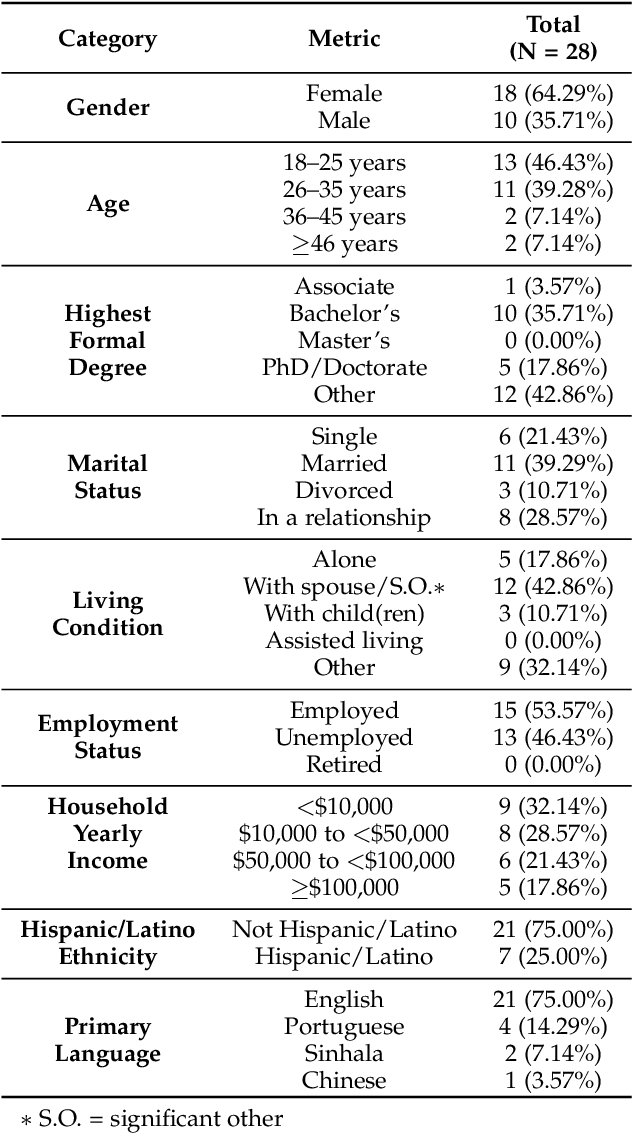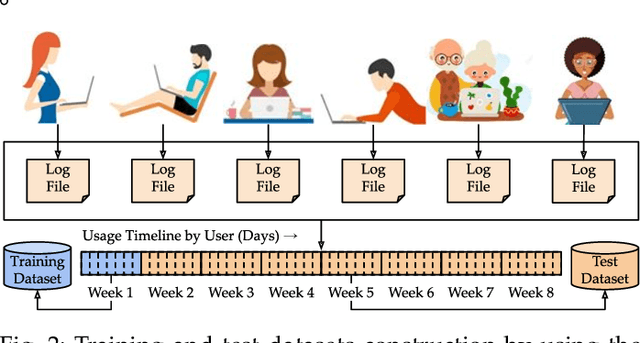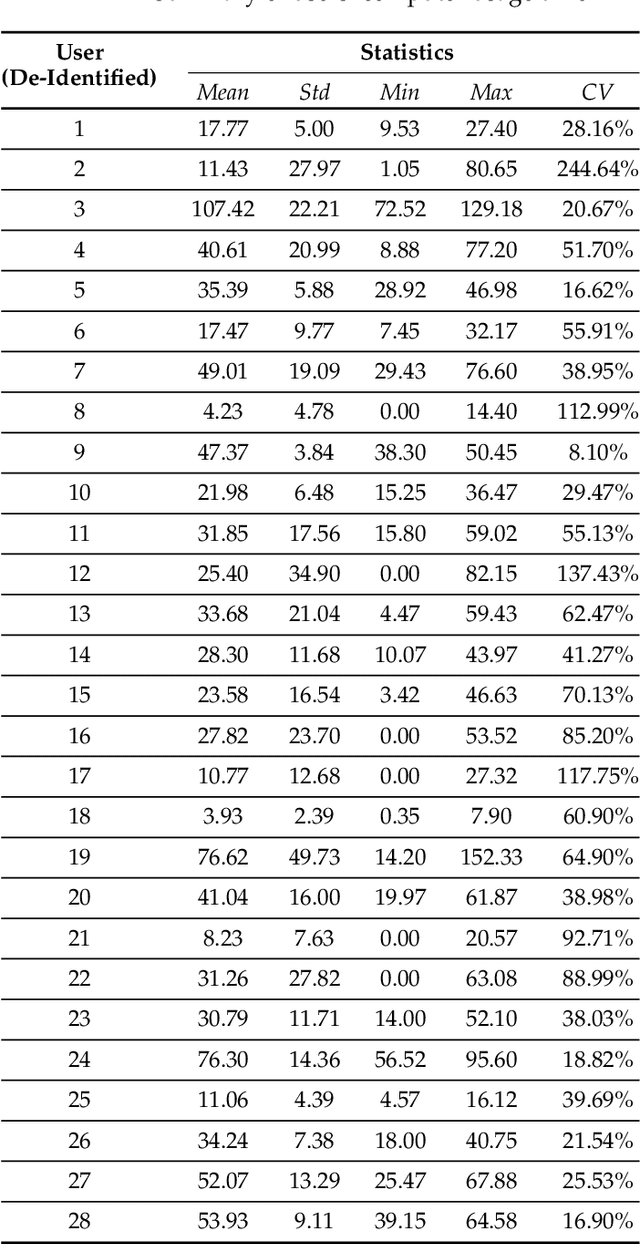Computer Users Have Unique Yet Temporally Inconsistent Computer Usage Profiles
Paper and Code
May 20, 2021



This paper investigates whether computer usage profiles comprised of process-, network-, mouse- and keystroke-related events are unique and temporally consistent in a naturalistic setting, discussing challenges and opportunities of using such profiles in applications of continuous authentication. We collected ecologically-valid computer usage profiles from 28 MS Windows 10 computer users over 8 weeks and submitted this data to comprehensive machine learning analysis involving a diverse set of online and offline classifiers. We found that (i) computer usage profiles have the potential to uniquely characterize computer users (with a maximum F-score of 99.94%); (ii) network-related events were the most useful features to properly recognize profiles (95.14% of the top features distinguishing users being network-related); (iii) user profiles were mostly inconsistent over the 8-week data collection period, with 92.86% of users exhibiting drifts in terms of time and usage habits; and (iv) online models are better suited to handle computer usage profiles compared to offline models (maximum F-score for each approach was 95.99% and 99.94%, respectively).
 Add to Chrome
Add to Chrome Add to Firefox
Add to Firefox Add to Edge
Add to Edge